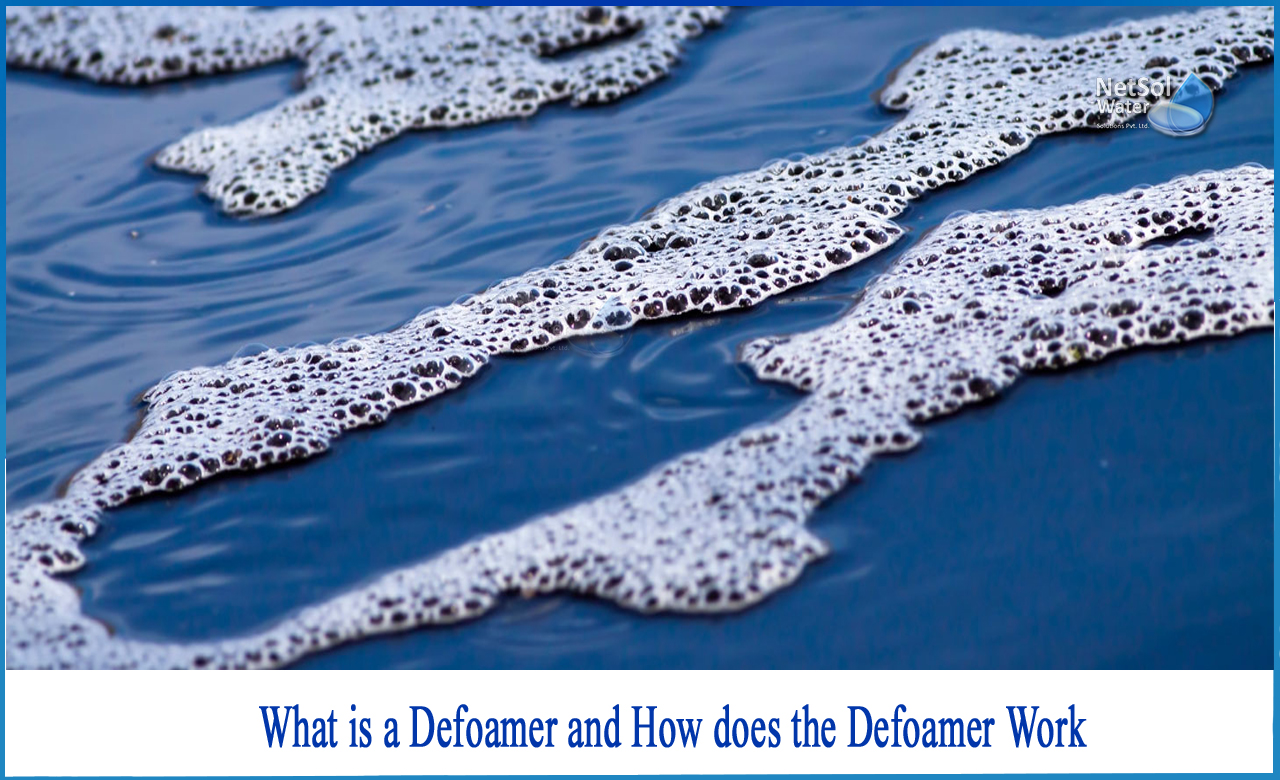Choosing the Right Defoamers for Your Industry Needs
Choosing the Right Defoamers for Your Industry Needs
Blog Article
Discover the Top Advantages of Utilizing Defoamers in Industrial Processes
The use of defoamers in industrial procedures offers a range of compelling advantages that can boost operational performance and item high quality. By efficiently regulating foam manufacturing, these representatives not just enhance material flow yet likewise add to considerable expense reductions and enhanced sustainability. The ramifications of embracing defoamers might be more extensive than initially regarded.
Enhanced Process Effectiveness
Enhancing industrial processes frequently entails attending to frothing problems, which can prevent operational efficiency. Foam development can hinder the appropriate functioning of devices, decrease the efficient usage of sources, and make complex the surveillance of important specifications. By applying defoamers, sectors can successfully minimize these problems, leading to streamlined operations and boosted efficiency.
Defoamers work by destabilizing the foam framework, enabling for fast collapse and considerable reduction in foam quantity. This activity not just enhances the flow of materials with devices, such as reactors, mixers, and pipes, yet likewise decreases interruptions brought on by foam overflow. Equipment downtime is lowered, allowing for a more reliable and continuous manufacturing procedure.
Furthermore, using defoamers can lead to lowered power usage. With less foam to manage, pumps and compressors can run a lot more efficiently, leading to reduced operational costs and an overall renovation in process throughput. Ultimately, the tactical use defoamers not only addresses prompt frothing difficulties however additionally adds to a much more effective commercial ecosystem, cultivating a competitive benefit in a requiring market.
Improved Item High Quality
The integration of defoamers in commercial processes plays an essential function in boosting product quality. By effectively regulating foam formation, defoamers add to the consistency and harmony of final products. Extreme foam can lead to aeration, which negatively impacts the texture and security of formulations, especially in industries such as food and drugs, layers, and beverages.

In addition, defoamers assist in better blending and diffusion of active ingredients, causing homogeneity in formulas. This is vital in applications where exact component proportions are essential for performance and safety. Additionally, the removal of foam can minimize the threat of contamination throughout manufacturing, more protecting item stability.
Inevitably, by improving item top quality, defoamers not just enhance consumer complete satisfaction yet also enhance brand online reputation. Their duty in maintaining premium requirements emphasizes their importance in modern commercial processes.
Price Decrease Benefits
Carrying out defoamers in industrial procedures can bring about considerable cost decrease benefits. By properly regulating foam development, defoamers minimize product loss during manufacturing, thus maximizing material usage. This reduction in waste translates straight right into lower raw product prices, enhancing overall operational performance.
Moreover, the use of defoamers can lower energy usage. Extreme foam can prevent tools performance, leading to enhanced energy needs to preserve manufacturing degrees. By minimizing foam, defoamers facilitate smoother operations, allowing machinery to run much more effectively and minimizing energy expenses.

Furthermore, defoamers can shorten processing times. Foam can create additional obstacles that lengthen manufacturing cycles. By using defoamers, markets can enhance their procedures, causing faster turnaround times and improved throughput. This efficiency not just increases manufacturing however also permits business to satisfy market demands much more swiftly.

Environmental Impact Mitigation
In commercial procedures, using defoamers plays a crucial duty in mitigating ecological effects linked with foam generation. Foam can lead to considerable functional ineffectiveness, causing raised emissions and waste generation. By efficiently managing foam, defoamers aid keep procedure efficiency, thus lowering the overall environmental footprint of operations.
Furthermore, extreme foam can overflow containment systems, causing spills that might pollute soil and water resources. Defoamers help minimize this risk by guaranteeing that lathering does not surpass prescribed restrictions, advertising conformity with ecological laws. This proactive approach not just safeguards ecosystems but additionally boosts the sustainability of commercial methods.
Furthermore, the use of defoamers can lower energy usage in various processes. defoamers. Reducing foam development reduces the requirement for extra energy-intensive steps, such as increased frustration or pumping, which might otherwise be necessary to handle foam. Consequently, the adoption of defoamers lines up with wider sustainability goals by advertising energy efficiency while linked here minimizing the carbon impact of industrial tasks.
Inevitably, integrating defoamers right into industrial operations is a tactical action that sustains environmental stewardship and liable resource monitoring.
Adaptability Across Industries
Throughout various sectors, defoamers demonstrate impressive flexibility, adapting to the specific needs of varied applications. In the food and beverage sector, for example, defoamers are important to keeping product top quality by stopping foam development throughout handling, which can affect texture and flavor. In the pharmaceutical sector, defoamers ensure the stability of formulations, boosting product effectiveness and uniformity.
In the chemical manufacturing realm, defoamers assist in smoother procedures by reducing foam in response vessels, hence improving yield and reducing downtime. The paper about his and pulp market depends on defoamers to boost the efficiency of pulp processing and paper manufacturing, ensuring optimal product stability. In addition, in wastewater therapy centers, defoamers play an important function in regulating foam throughout oygenation procedures, leading to improved treatment results.
The adaptability of defoamers expands to the oil and gas sector, where they assist in managing foam in drilling fluids and production processes. By tailoring formulas to satisfy certain market demands, defoamers work as crucial devices that boost functional performance, product quality, and overall procedure effectiveness throughout a plethora of fields. Their versatility emphasizes their value in modern-day commercial applications.
Verdict
In verdict, the usage of defoamers in commercial procedures presents many benefits, including improved performance, improved product top quality, significant expense decreases, and favorable environmental impacts. The combination of defoamers stands for a strategic method to resolving challenges associated with foam administration in numerous manufacturing atmospheres.
Eventually, the strategic use of defoamers not only addresses instant lathering obstacles yet also contributes to a more effective industrial ecosystem, cultivating a competitive advantage in a demanding market.
In industrial processes, the use of defoamers plays a critical duty in mitigating ecological influences linked with foam generation. By effectively controlling foam, defoamers help preserve procedure performance, therefore lowering the total ecological impact of procedures.
Furthermore, in wastewater treatment facilities, defoamers play an important role in controlling foam during aeration processes, helpful site leading to improved therapy end results.

Report this page